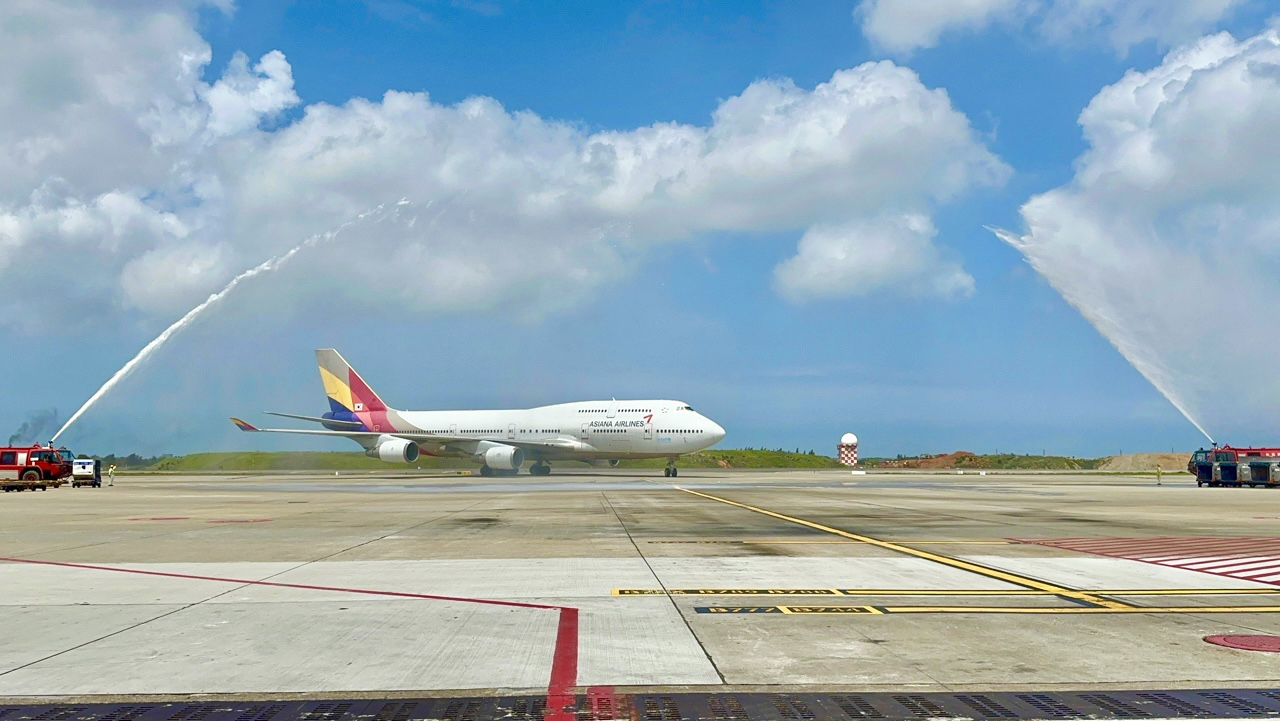Jeju Air opts out of Asiana Airlines' cargo division bid
By Kim Hae-yeonPublished : April 26, 2024 - 16:03

During the bidding process among domestic low-cost carriers for the acquisition of Asiana Airlines' cargo division, Jeju Air, previously considered the front-runner, has chosen not to participate in the bidding.
According to industry sources, the main bidding process, organized by financial services firm UBS for the sale of Asiana Airlines' cargo plane division on Thursday, saw the participation of three budget airlines: Eastar Jet, Air Premia and Air Incheon.
Jeju Air did not submit a proposal for the scheduled bidding despite having conducted "due diligence on Asiana Airlines' cargo plane business," it said in a public disclosure filed after the bid closure Thursday afternoon.
The selection of a preferred bidder is anticipated to be finalized as early as next month, after the review period.
The sale of Asiana's cargo plane division commenced following the European Commission's conditional approval of a business merger between Korean Air and Asiana Airlines.
Korean Air proposed the sale conditions for Asiana Airlines' cargo division through a corrective measure submitted in November last year, to divest Asiana Airlines' cargo freighter business and turn over certain airport slots. While the initial estimated sale price of the company's cargo business was around 1 trillion won ($725 billion), estimates have recently decreased to a range of 500 to 700 billion won.
Initially, as the nation's third-largest airline, Jeju Air was singled out as a top contender, backed by its parent firm, Aekyung Group, with assets totaling 7 trillion won.
Industry sources analyze that Jeju Air and Aekyung Group's failure to form a consortium with a separate financial investor affected their financial capacity. Speculations that Jeju Air might utilize a credit special situations fund managed by private equity firm MBK Partners for the acquisition were also debunked. Aekyung Group's significant investment in revitalizing its shopping mall business, AK Plaza, further complicated matters.
Air Premia joined the bidding by reportedly forming a consortium with MBK Partners. Similarly, Air Incheon reportedly entered the fray in partnership with Korea Investment Partners, while Eastar Jet's primary shareholder is speculated to be VIG Partners, also a private equity firm.
"Given the withdrawal of the leading contender from the bidding process, the decision-making criteria will now encompass not only quantitative factors like the sale price but also post-acquisition considerations such as cargo handling proficiency, employment assurances and overall management capabilities," an industry insider explained, on the condition of anonymity.
Meanwhile, all three companies bring different areas of expertise in cargo transportation to the table.
Air Premia specializes in long-distance routes such as services to Frankfurt and New York, Air Incheon focuses on cargo services and Eastar Jet has extensive experience in belly cargo flights, or transporting cargo beneath its passenger planes.
The seller aims to select a preferred bidder next month after evaluating the proposed takeover amount and fundraising plans. Simultaneously, it will designate a backup preferred bidder to alleviate deal closure uncertainties.
Asiana Airlines' assets up for sale include 11 cargo planes, along with slots, transportation rights, pilots and staff. Over the past four quarters, the cargo division has realized an EBITDA of some 300 billion won, with an operating profit of 150 billion won during the same period.







![[AtoZ Korean Mind] Does your job define who you are? Should it?](http://res.heraldm.com/phpwas/restmb_idxmake.php?idx=644&simg=/content/image/2024/05/06/20240506050099_0.jpg&u=)











